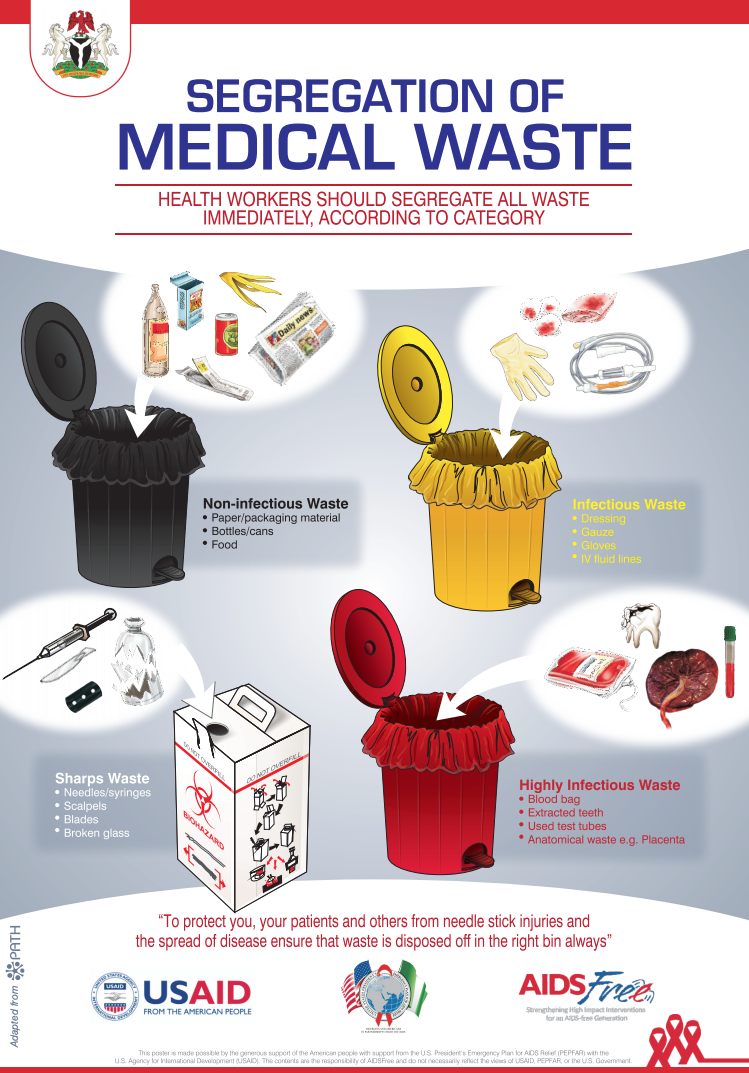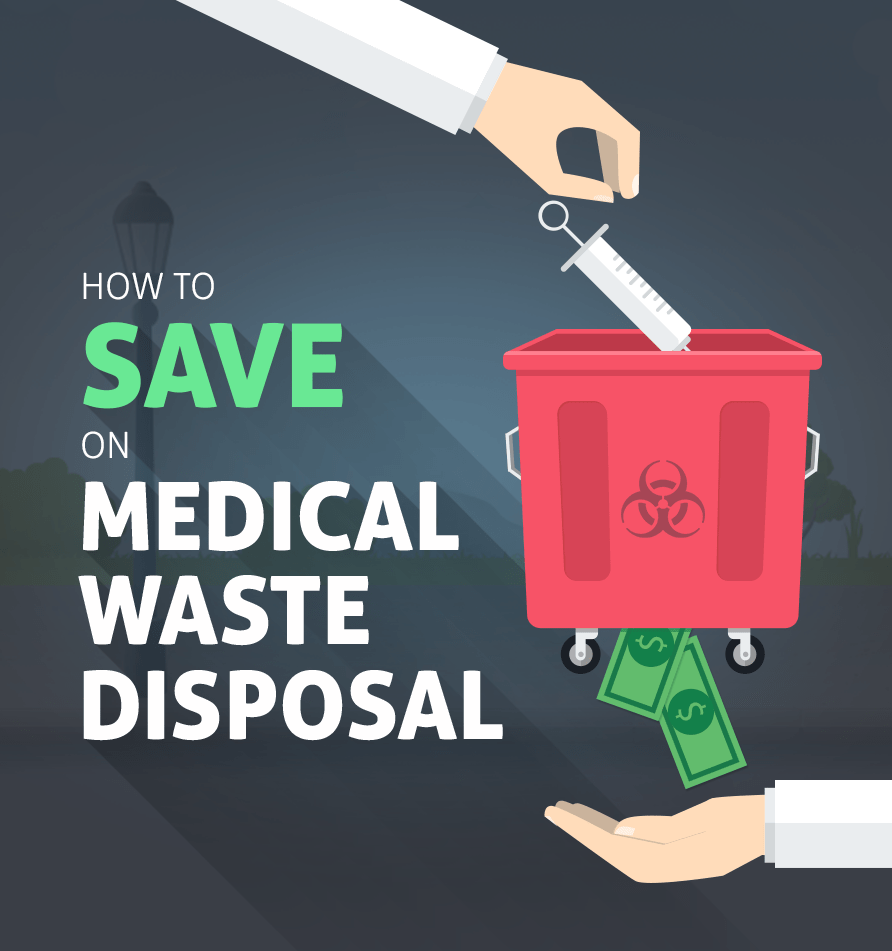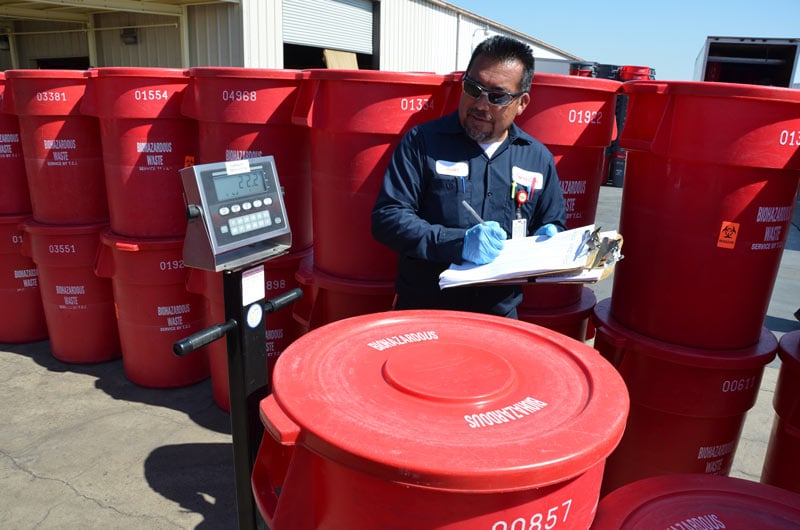Reliable and Liable Medical Waste Removal: Protecting Individuals and the World
Wiki Article
Ensuring Safe Handling and Disposal of Medical Waste
Making sure secure handling and disposal of clinical waste is of paramount value in medical care settings. Improper management of medical waste can present substantial threats to the atmosphere, public health, and healthcare workers. This demands adherence to rigorous guidelines and procedures for its safe handling and disposal. In this introduction, we will certainly explore the value of proper medical waste management, the risks connected with inappropriate handling and disposal, along with the standards and approaches that can be implemented to guarantee its secure disposal. In addition, we will certainly review the relevance of training and education and learning for medical care specialists in order to keep a secure and tidy health care atmosphere. By following these practices, we can effectively mitigate the possible threats linked with clinical waste.Importance of Correct Medical Waste Management
Appropriate medical waste administration is of utmost importance in guaranteeing the safety and security and wellness of health care experts, patients, and the public. Clinical waste refers to any waste produced by health care centers throughout the diagnosis, therapy, or immunization of human beings or animals. This waste can position significant health and wellness threats if not handled and thrown away correctly.
Among the key reasons why correct medical waste administration is critical is to avoid the spread of transmittable diseases. Medical waste, such as utilized needles, infected dressings, and biological materials, can bring unsafe pathogens. If not taken care of and dealt with properly, these virus can be transmitted to healthcare employees, patients, waste handlers, and even the basic public, resulting in the prospective break out of conditions.
In addition, proper medical waste management assists secure the setting - medical waste disposal service. Medical waste consists of unsafe products, consisting of chemicals, drugs, and contaminated materials. When not taken care of suitably, these materials can infect dirt, water bodies, and the air, posing a considerable hazard to communities and public health
Moreover, reliable medical waste management ensures conformity with international criteria and regional guidelines. Governments and regulatory bodies have developed standards and procedures to guarantee the safe handling, storage, transportation, and disposal of medical waste. Sticking to these guidelines is crucial to stay clear of lawful repercussions and keep the reputation and credibility of medical care facilities.
Dangers of Improper Handling and Disposal

If clinical waste is not appropriately disposed of,People can additionally be exposed to these infectious conditions. If contaminated needles or other sharps are not disposed of in designated puncture-proof containers, they might inadvertently prick individuals, leading to possible infections. If medical waste is not set apart appropriately, there is a threat of cross-contamination between various kinds of waste, more boosting the possibilities of disease transmission.
Improper disposal of medical waste can likewise have detrimental results on the setting and the public. If clinical waste is not dealt with and disposed of correctly, it can contaminate water resources, dirt, and air, leading to the spread of toxins and diseases. This can have long-term consequences on ecosystems and public wellness.
Standards for Safe Handling of Medical Waste
Implementing reliable methods for the risk-free handling of clinical waste is important in ensuring the protection of health care experts, individuals, and the basic public. These guidelines are important in lessening the threats associated with the handling and disposal of medical waste, such as infections, injuries, and ecological air pollution.First and primary, health care centers must develop a detailed waste monitoring plan that sticks to local, nationwide, and global regulations. This strategy should consist of clear instructions on waste partition, packaging, storage, transportation, and labeling. It is vital to divide various kinds of waste, such as sharps, infectious materials, pharmaceuticals, and non-hazardous waste, to stop cross-contamination and promote secure disposal.
Additionally, health care employees should obtain extensive training on appropriate waste handling techniques. They should be enlightened on the possible threats of clinical waste, the proper use personal safety tools (PPE), and the appropriate treatments for taking care of, carrying, and throwing away different kinds of waste.
Additionally, healthcare centers need to routinely monitor and investigate their waste administration practices to guarantee conformity with guidelines. This consists of conducting normal evaluations, evaluating waste handling procedures, and offering responses and training to team member.
Reliable Strategies for Garbage Disposal
To make sure the risk-free handling and disposal of medical waste, it is necessary to use reliable approaches for waste disposal. Medical waste can position substantial risks to public health and the environment if not taken care of and thrown away properly. Consequently, health care facilities and waste administration organizations must implement appropriate methods to alleviate these risks.One reliable strategy for garbage disposal is partition. It involves separating various types of clinical waste based upon their attributes. Partition enables for the proper therapy and disposal of each waste group, decreasing the capacity for contamination or injury. Healthcare facilities ought to provide clear guidelines and training to personnel on how to set apart waste properly.

In addition, healthcare facilities ought to work together with accredited waste monitoring firms to guarantee appropriate disposal of medical waste. These business have the experience and tools required to securely handle and dispose of medical waste in compliance with regulations and best techniques.
Training and Education And Learning for Medical Care Professionals
Medical care specialists play a vital function in making sure the risk-free handling and disposal of medical waste through extensive training and education. It is important for healthcare service providers to have a deep understanding of the potential risks related to medical waste and the appropriate protocols for its management. By getting proper training, healthcare specialists can lessen the possible transmission of infectious conditions, prevent environmental contamination, and safeguard both themselves and the public.
Moreover, training programs should highlight making use of personal safety tools (PPE) and proper hand health techniques when handling clinical waste. medical waste disposal. Health care experts ought to understand how to properly get rid of and make use of of PPE to shield themselves from prospective direct exposure to unsafe products. They need to additionally be informed on the significance of regular handwashing and the appropriate usage of hand sanitizers to minimize the spread of contagious diseases
Continuing education and learning and routine updates on medical waste monitoring practices are important for health care specialists. As guidelines and regulations progress, it is important to keep doctor informed about any type of modifications in methods and finest practices. This will make certain that they stay current and preserve a high requirement of safety and security in disposing and taking care of of clinical waste.
Verdict
In conclusion, appropriate handling and disposal of medical waste is essential to guarantee the safety of healthcare professionals, patients, and the atmosphere. By adhering to these methods, we can minimize the potential threats associated with clinical waste.Medical waste refers to any waste created by medical care centers throughout the medical diagnosis, treatment, or immunization of animals or humans. If medical waste is not set apart correctly, there is a threat of cross-contamination between various kinds of website here waste, additional raising the chances of condition transmission.
It is important to separate different kinds of waste, such as sharps, transmittable products, pharmaceuticals, and non-hazardous waste, to stop cross-contamination and advertise safe disposal. WasteX Medical Waste Disposal.
To make certain the risk-free handling and disposal of medical waste, it is crucial to employ efficient strategies for waste disposal. In addition, medical care centers must establish a regular waste collection and transportation timetable to stop waste build-up and minimize the danger of crashes or contamination.
Report this wiki page